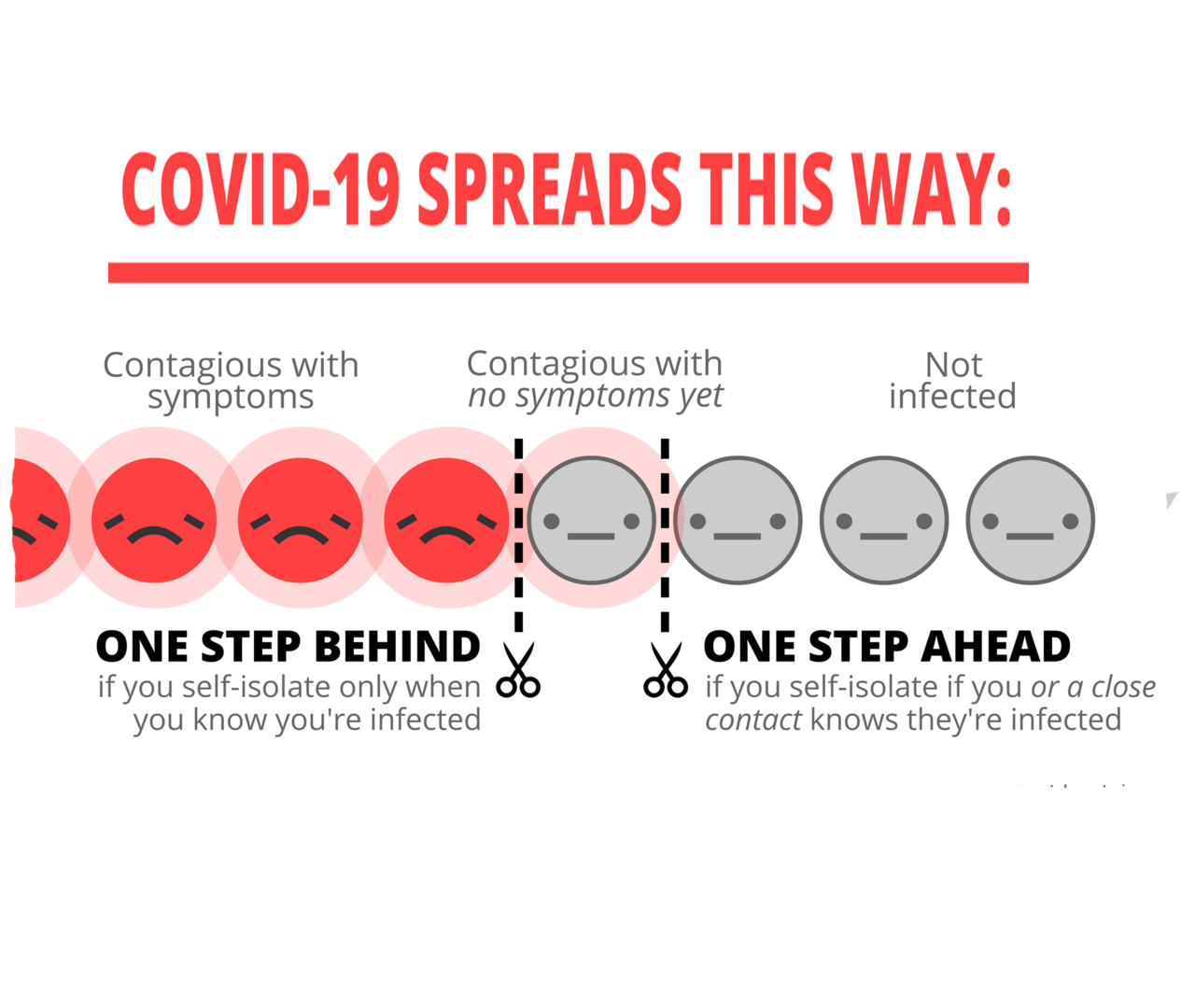The CDC now says the virus is no longer contagious 10 days after symptom onset down from a previous 14 days. Get tested 5-7 days after the end of isolation for the most recently infected member of the household.

What We Need To Understand About Asymptomatic Carriers If We Re Going To Beat Coronavirus
One 2021 review suggests that a person with COVID-19 is most contagious in the first week of illness.

How long after being infected with covid-19 do you become contagious. You are a close contact if you have been near someone with COVID-19 while they have been infectious. On the other hand research suggests that people who are infected with SARS-CoV-2 the virus that causes COVID-19 are at their most contagious in the 24 to 48 hours before they experience symptoms. This is because you could start to develop symptoms within two to 14 days after exposure and can still be contagious before you even develop symptoms Dr.
If youve been around someone with COVID-19 you may be contagious as early as two days after that exposure if you do become infected. But you would still expect there to be a few days between the time a person is exposed and infected and the time they begin actively shedding virus. If youve been sick with COVID-19 whether your illness was confirmed by testing or symptom-based criteria the CDC recommends that you remain isolated for at least 10 days since symptom onset and up to 20 days in cases of severe illness.
If you have been vaccinated with a COVID-19 vaccine you are less likely to become severely ill if you catch COVID-19. Wear a mask when in contact with other people in the home until quarantine ends. Researchers estimate that people who get infected with the coronavirus can spread it to others 2 to 3 days before symptoms start and are most contagious 1 to 2 days before they feel sick.
Contact with a confirmed case of COVID-19 needs to have occurred during that persons infectious period a period which extends from 48 hours before the their symptoms started until they are. Furthermore doctors warn that an individual can spread COVID-19 even before showing symptoms. There is a reasonable chance a close contact will get infected with COVID-19.
There may be exceptions to these timings so experts recommend 10 days of isolation after either testing positive for the virus being exposed to a person who has been infected with COVID-19 or. The Centers for Disease Control and Prevention CDC says that based on current evidence people with mild to moderate COVID-19 are contagious for up to 10 days following symptom onset. Those who are immunocompromised may be contagious for up to 20 days.
The incubation period for the coronavirus is between 2 and 14 days. The SARS-CoV-2 infection that causes COVID-19 can be contagious for around 2 weeks but the exact duration varies from person to person. Though current CDC guidelines suggest most people with COVID-19 arent contagious 10 days after the onset of symptoms health experts say measuring this may be is.
According to the NHS around one in three people infected with Covid do not show any symptoms at. The infectious period means the time youre able to spread the virus to someone else. Otherwise wait five to seven days.
If you are fully vaccinated and have been around someone with or suspected of having COVID-19 you do not need to quarantine. If you develop symptoms get tested right away. This of course.
Can you be infectious without symptoms. People who test positive for COVID-19 but do not develop symptoms in the 10 days following the test result are considered to be likely no longer contagious after those 10 days. This is in line with the CDCs recommendation that a person diagnosed with COVID-19 can be released from isolation after 10 days from symptom onset and at least three days from fever resolution.
If you have the virus it takes time to build up in your system. Therefore they may be most contagious shortly before and shortly after symptoms appear. On average COVID-19 symptoms appear around 5 days after exposure but this can vary.
If you arent fully vaccinated quarantine right away after youve been exposed to someone with COVID-19. You are also less likely to spread COVID-19 to other people but it. However as of July 2021 the CDC recommends that you be tested three to five days after exposure and wear a mask in public indoor settings for 14 days or until you receive a negative test result.
Its also important to. In other words although being infectiouscontagious means being a carrier being a carrier doesnt always. The infectious period only starts a few days after being exposed to the COVID-19 virus.
COVID-19s incubation period lasts up to 14 days. For COVID-19 there is emerging evidence to suggest the infectious period may start 1. That doesnt mean that the virus wears the watch or carries the yardstick but there has to be definitions in order to implement public health.
Wear a mask when in contact with any person with COVID-19 while that person is in isolation. Shira Doron of Tufts Medical Center said the classic definition of exposure to COVID-19 is when youve been within six feet of a person in the contagious stage of infection for at least 15 minutes. Scientists caution however the period of infectiousness for COVID-19 is not yet known with certainty.

How Long Are You Contagious With Covid 19 Uc San Diego Health Youtube
Covid 19 Incubation Timeline When Am I Contagious

Delta Variant Isn T As Contagious As Chickenpox But Is Still Highly Contagious Goats And Soda Npr